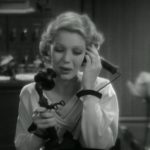 |
 |
 |
| Lola Loretta Young |
Ken Norman Foster |
Agnes Aline MacMahon |
| Released by Warner Bros. | Directed by Thornton Freeland Run time: 67 minutes |
||
Proof That It’s a Pre-Code Film
- A working women succeeds in a man’s world.
- Men wake up in the morning with one thing on their mind.
Week-End Marriage: The Man Gets You Down
“Yeah, men are selfish.”
“You’re telling me?!”
“What do they care how they mess up our lives? Just let someone interfere with them. Their plans or their career.”
“Ain’t it the truth?”
Mostly composed of angry lectures, Week-End Marriage is about an idealistic young couple named Lola (Young) and Ken (Foster). They’re wildly in love, but Ken is that typical pre-Code guy who just talks to fill the quiet spots and Lola the doe-eyed girl who nods meekly, amazed at his ability to gab his jaw.
The catch here is that Lola likes her job as a secretary. And she wants to keep working after marriage, like her older sister, Agnes (MacMahon). When Ken is offered a job in South America at a raise, Lola objects and he acquiesces to marry her instead. She still insists on keeping her job, but he’s sure that will change eventually.
Now keep in mind, there’s a running gag in the film that Ken is constantly late to work, and the implication is that it’s because he and his wife have sex every morning. And while he bucks for a promotion, he’s also cursed with bad luck. Not only do fewer opportunities come up, but his pay shrinks and he’s let go. It’s 1932, and the payrolls are shrinking across the country as nearly a quarter of the population is out of work. Ken can talk and talk, but when his job disappears, he’s nothing.
So now we’re in Mr. Mom territory, sans children. Ken can barely boil water and finds his wife’s success humiliating.
The standout scene of the movie occurs next. One hectic evening, Lola is called to the home of her working woman confederate, Connie (Shiela Terry). Connie is the oldest sister among a brood of orphans, all suffering under the grim hand of their older brother Joe (J. Carroll Naish) who is forcing her to marry a dopey bootlegger (Luis Alberni). Connie basically cowers as her brother twists her arm and informs her that her feelings are irrelevant to the situation. She’ll marry the corpulent man whether she likes it or not. Lola protests as well to protect her friend, but is shut down and dismissed. There’s a physical sense of dread that lingers over this scene, and no resolution for it later in the film. Connie is trapped in the system, and the movie doesn’t gussy it up later on with a “Oh, it all turned out okay!” This shit can’t end well.
This plays into the next section of the film. Since Lola spent the evening trying to help her friend escape a loveless marriage with a man she detests, Ken decides to step out. Lola has to bail him from jail the next morning– along with the streetwalker he’d picked up (Vivienne Osborne).
Amid constant cries of “The man you love is worth all the jobs in the world!”, Lola picks a job offer in St. Louis over her flailing relationship. Ken somehow ends up with the streetwalker as a caretaker while his wife gets promotion after promotion and even seems to tame a playboy played by George Brent. I won’t give away the ending, but it doesn’t end with Ken swallowing his pride; Lola somehow even gets the blessing from his mistress for finally deciding to pursue her traditional gender role in the closing minutes of the play, for whatever that’s worth.
Let me sum it up thusly: these people will die hungry and poor, out on the street. Lola will probably lose a baby to malnutrition as both she and the child starve to death. But Ken can still hold his head high. That’s what’s important.
A bevy of men throughout the movie take turns lecturing, cajoling, threatening, and screaming at the women characters, telling them that working girls will be always be miserable. What they neglect to mention is that they’re going to be made miserable by a random assortment of men lecturing, cajoling, threatening, and screaming at them.
Men don’t crave freedom, the men suggest. They crave order; they say it’s by having a woman impose it upon him, but really it’s an egocentric push towards a precise way of life in which men control their wives, mothers, sisters, and, if necessary, their mistresses as well.
The audience for Week-End Marriage, even as they lived in a messier approximation of this dreary world, could all see how Lola really succeeded. How her success came so easy, how she had every right not to ask her husband-to-be not to take a job in South America without even considering her feelings. How she’d apparently gotten serial-womanizer wrapped around her finger, with power and respect courting her. It’s an example of how unfettered a woman could fly, if only they didn’t have their duty to men to shackle them to the ground. The women of this time agreed that men were giant, useless babies without them, and acted accordingly.
Week-End Marriage will probably aggravate many modern viewers. It asks if women can have it all and repudiates the notion with anger and pettiness at every turn. This isn’t exactly a sweeping endorsement of the male gender, either, as they are to a man cruel, impotent snarks who can’t expand or contract their roles as anything other than petty social tyrants.
What’s nice is the blatancy of the piece; it’s not hard to see where the cookie is crumbling. Despite the film’s overtly-misogynistic tone, Lola’s competence is never questioned. Even if the movie makes Aline MacMahon grovel for losing Roscoe Karns (really?!), it still stands head and shoulders against comedies from the 40s and 50s that took ‘liberated’ women and made them objects of ridicule and folly.
Screencap Gallery
Click to enlarge and browse. Please feel free to reuse with credit!
Other Reviews, Trivia, and Links
- Andre Sennwald in the New York Times found the movie barely worth discussing, noting its samey-ness to similar pictures and adding:
But the situation needs fresher writing and a less commonplace statement than it has received in this new film to make it worth listening to again.
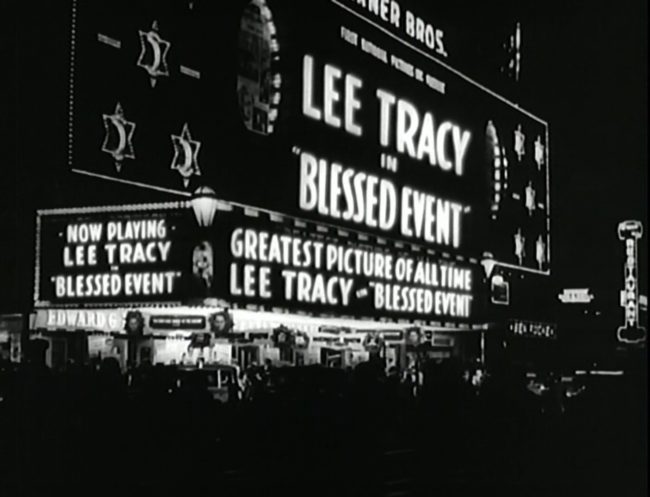
The film opens with Ken and Lola attending Blessed Event. The marquee may be exaggerating things a bit.
-
Theresa Brown at Cinemaven (on pages 1 and 2) has more empathy for Norman Foster than me, but nails the film’s rough, interesting edge:
Throughout the movie there’s different points of view about marriage and I have to admit, they’re harsh, glass half-empty arguments. But coming out of the mouths of babes like Aline MacMahon and Sam Levene it’s a wondrous sight to behold – their words slicing and dicing like shards of glass. Hearing these rock hard, cynically blistering indictments on the state of matrimony and what’s expected of women, took my breath away with an almost equal mixture of humor and horror. […]
Can a woman have it all? “Week-End Marriage” doesn’t give a definitive answer to my original hypothesis, though it does seem to lean towards “No she can’t.” All I’m posing is that women should have choice. And I must be conscientious and aware NOT to be upset with whatever choice a woman chooses to choose even if it’s not the choice I want her to choose for herself. Ladies look, you CAN have it all if you want. You can work outside and/or only inside the home. And depending on your husband…inside may be twice as hard.
Awards, Accolades & Availability
- This film is available on Amazon thanks to Warner Archive. It is on a double feature with Road to Paradise. Thank you to Warner Archive for providing a review copy of this film.
More Pre-Code to Explore




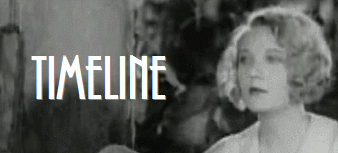


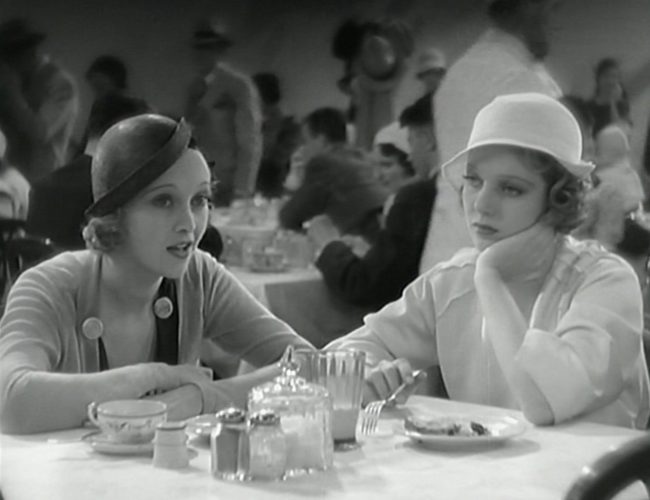
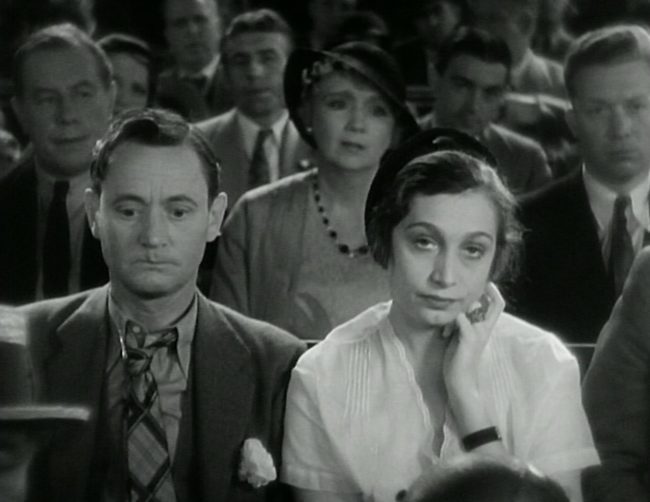
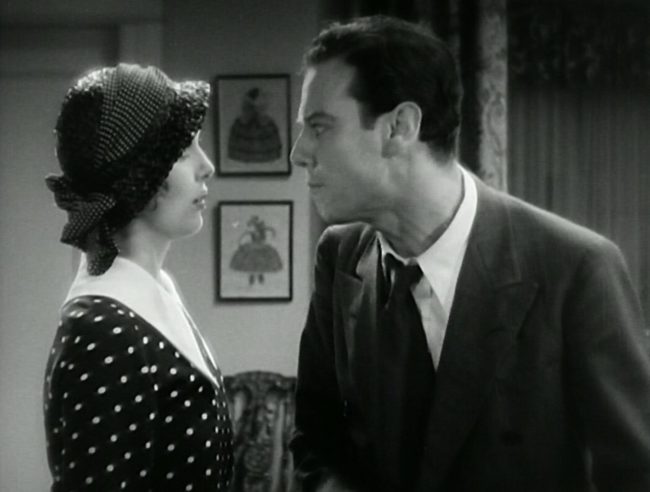
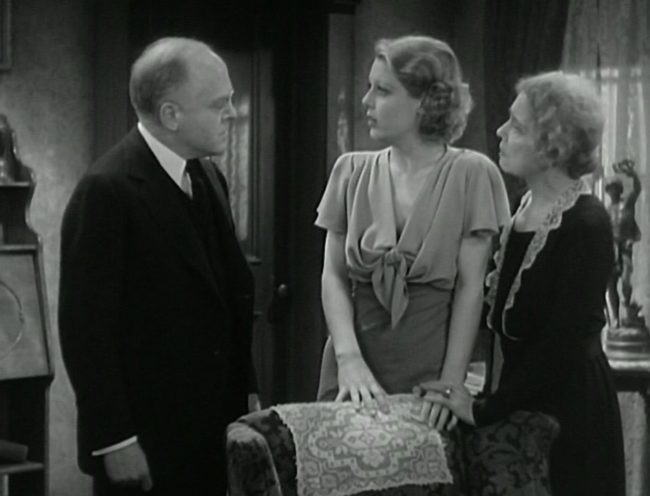
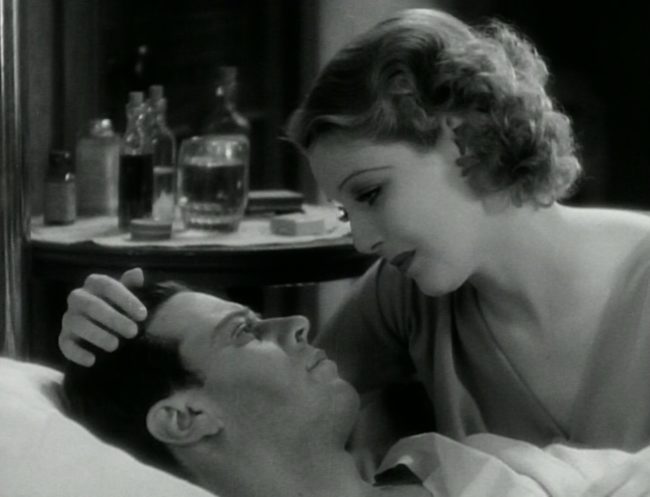
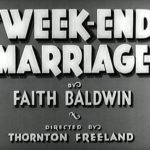

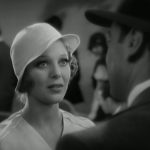











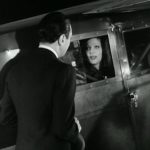







3 Comments
CineMaven · December 7, 2017 at 3:41 am
I’m truly flattered to be cited in your essay Pre-Code Danny. Thank you! ( Hmmm…didn’t I say Norman Foster was a putz??! If NOT, I MUST correct that if I didn’t.) Thank you AGAIN!!! 🙂
shadowsandsatin · December 7, 2017 at 6:30 am
Love your post, Danny, and I love this movie. It’s funny, too, that you wrote about it — I’m writing right now about a movie starring Vivienne Osborne and I read that she was in Week-End Marriage, but I totally don’t remember her. So I’m planning on a immediate rewatch.
Angela H · December 15, 2017 at 8:03 am
The scene near the beginning, when Loretta Young is coached by Aline MacMahon on how to trap her boyfriend into marriage (and Loretta Young takes it down in shorthand), was used in two other movies. It was used in “Maybe It’s Love” (1935) with Gloria Stuart and “Saturday’s Children” (1940) with Anne Shirley and John Garfield. Both of those movies were based on the play “Saturday’s Children” which opened in 1927.
It drove me crazy for awhile, I knew the scene was familiar, but with a little bit of digging I confirmed that it really was used in three movies. “Weekend Marriage” wasn’t based on the play, so they must have just borrowed the scene alone. It can’t just be a coincidence. The scene is practically word for word the same.
Comments are closed.